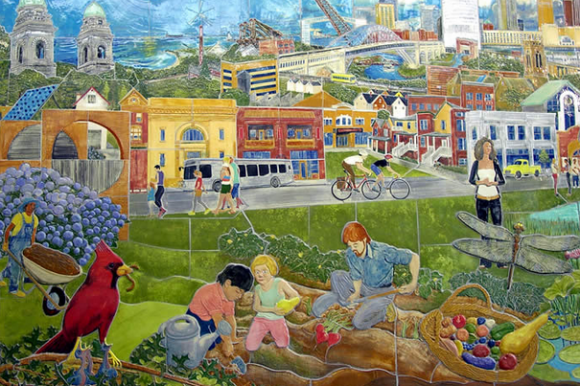How Communities Can Build Wealth By Knocking On Doors
By Oscar Perry Abello in Next City - Jennifer Meccozi spent two decades chopping onions as a restaurant cook before she became “chief door knocker” in Buffalo, New York, or in other words, director of organizing at People United for Sustainable Housing (PUSH) Buffalo. PUSH is a membership-based community organization dedicated to affordable housing, equitable jobs and ecological sustainability for the West Side of the city.
“People know that there are door-knocking campaigns and community organizers do it all the time, but have they thought of this consciously as a tool for economic development,” explains Keane Bhatt, senior associate for policy and strategy at the Democracy Collaborative, based in Takoma Park, Maryland. Bhatt is co-author of Educate and Empower: Tools for Building Community Wealth, a report released today that features profiles of 11 organizations including PUSH Buffalo.















